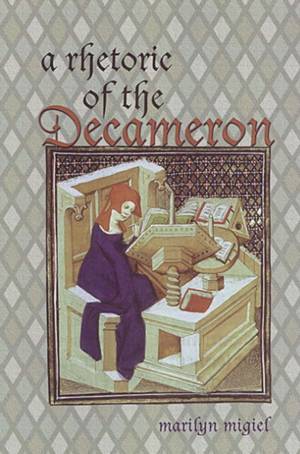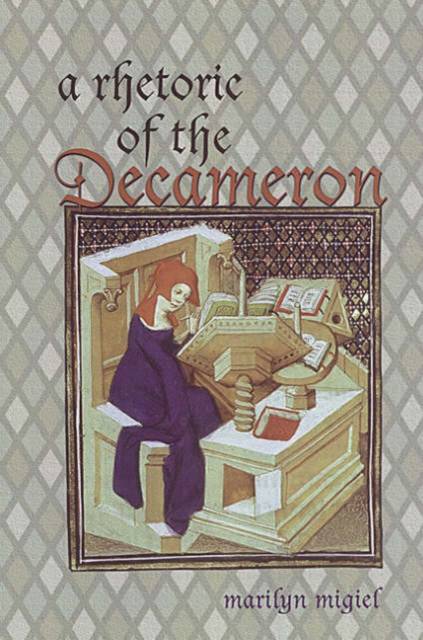
- Afhalen na 1 uur in een winkel met voorraad
- In januari gratis thuislevering in België
- Ruim aanbod met 7 miljoen producten
- Afhalen na 1 uur in een winkel met voorraad
- In januari gratis thuislevering in België
- Ruim aanbod met 7 miljoen producten
Omschrijving
Both a passionate denunciation of masculinist readings of the Decameron and a meticulous critique of previous feminist analyses, Marilyn Migiel's A Rhetoric of the Decameron offers a sophisticated re-examination of the representations of women, men, gender identity, sexuality, love, hate, morality, and truth in Boccaccio's masterpiece. The Decameron stages an ongoing, dynamic, and spirited debate about issues as urgent now as in the fourteenth century - a debate that can only be understood if the Decameron's rhetorical objectives and strategies are completely reconceived.
Addressing herself equally to those who argue for a proto-feminist Boccaccio - a quasi-liberal champion of women's autonomy - and to those who argue for a positivistically secure historical Boccaccio who could not possibly anticipate the concerns of the twenty-first century, Migiel challenges readers to pay attention to Boccaccio's language, to his pronouns, his passives, his echolalia, his patterns of repetition, and his figurative language. She argues that human experience, particularly in the sexual realm, is articulated differently by the Decameron's male and female narrators, and refutes the notion that the Decameron offers an undifferentiated celebration of Eros. Ultimately, Migiel contends, the stories of the Decameron suggest that as women become more empowered, the limitations on them, including the threat of violence, become more insistent.
Specificaties
Betrokkenen
- Auteur(s):
- Uitgeverij:
Inhoud
- Aantal bladzijden:
- 220
- Taal:
- Engels
- Reeks:
Eigenschappen
- Productcode (EAN):
- 9780802085948
- Verschijningsdatum:
- 15/01/2004
- Uitvoering:
- Paperback
- Formaat:
- Trade paperback (VS)
- Afmetingen:
- 162 mm x 238 mm
- Gewicht:
- 362 g

Alleen bij Standaard Boekhandel
Beoordelingen
We publiceren alleen reviews die voldoen aan de voorwaarden voor reviews. Bekijk onze voorwaarden voor reviews.









